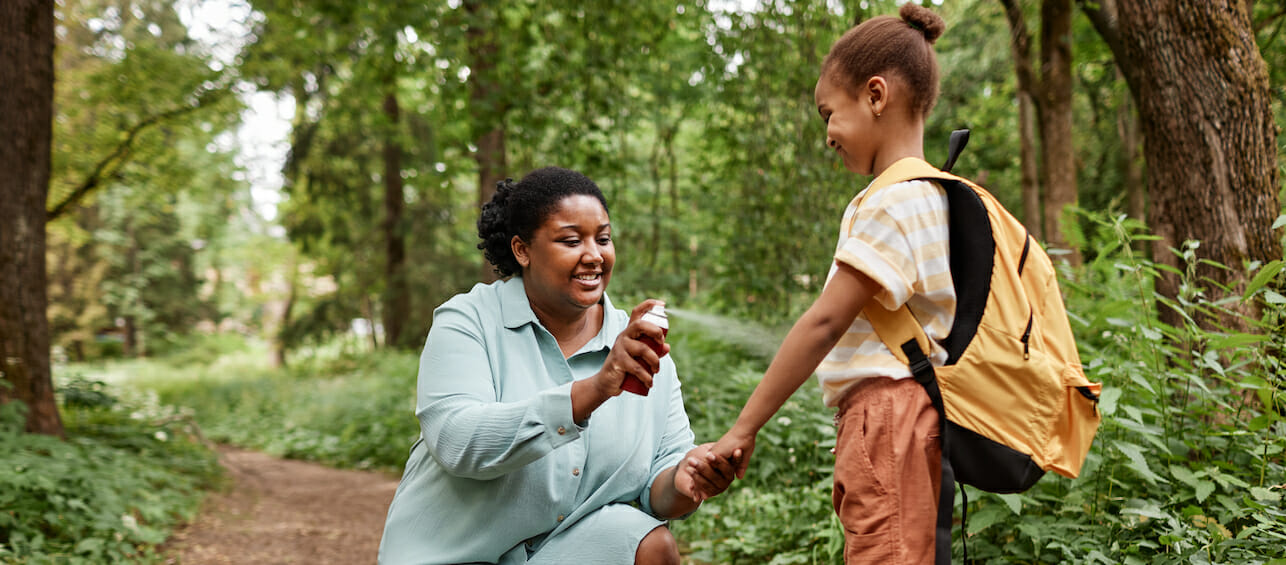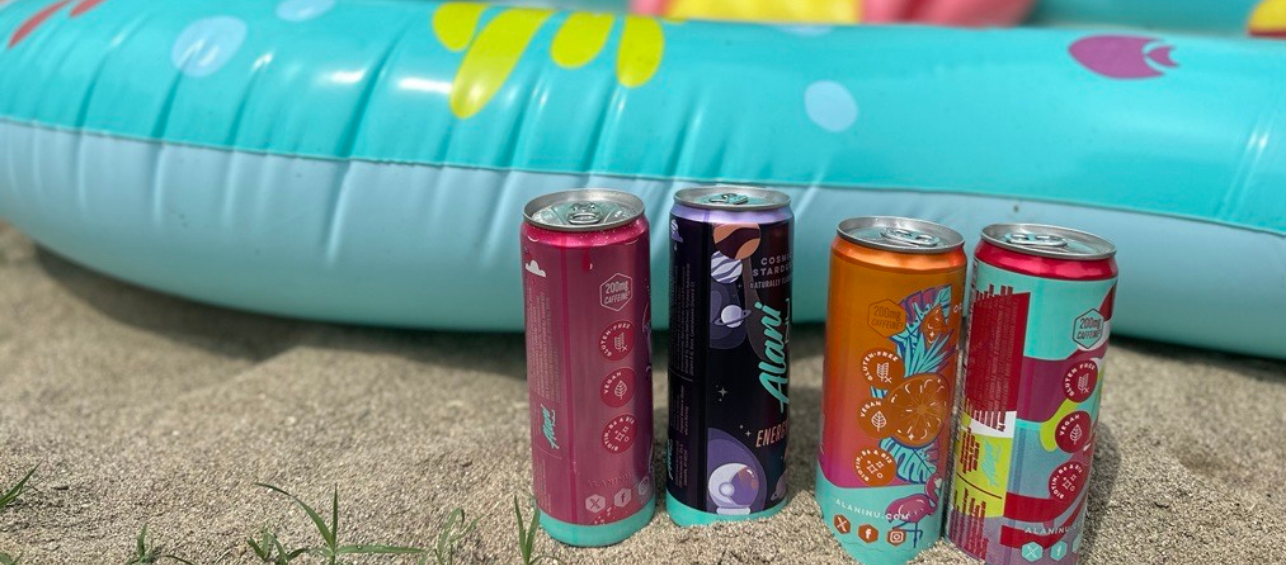When summer hits, so do the bugs. Unfortunately, mosquitoes, ticks, fleas, chiggers and biting flies can turn outdoor activities into miserable experiences.
Insect repellents can help protect you and your family from the annoying itching that comes with mosquito bites. But you’ll also want to make sure you use insect repellents to help ward off illnesses such as Lyme disease, West Nile disease and Zika virus. All of these spread through the bite of a mosquito or tick.
Using an appropriate insect repellent correctly is one way to help reduce your family’s chances of being bitten this summer.
Choosing an Insect Repellent for Your Family
Before they can be sold in stores, most insect repellents that can be put on the skin must be registered by the U.S. Environmental Protection Agency (EPA). Both the American Academy of Pediatrics (AAP) and Centers for Disease Control and Prevention (CDC) recommend using an EPA-registered insect repellent.
Insect repellents can be divided into two chemical classes:
- Synthetic chemicals — including DEET (N,N-diethyl-3-methylbenzamide) and picaridin.
Insect repellents with these chemicals provide protection from mosquitoes and ticks for an amount of time that is based on the concentration of the chemical. Products with lower concentrations of the chemical may need to be reapplied the longer you are outdoors.
Insect repellents with DEET offer the best protection against mosquito bites. When label directions are followed and the product is used safely, using insect repellents with DEET should not be harmful. DEET is approved by the EPA for use on children with no age restriction.
- Plant-derived oils — including oil of lemon eucalyptus and oil of citronella.
These are products derived from a plant. They also provide protection from mosquitoes and ticks based on their concentration. Some studies show that oil of lemon eucalyptus is nearly as effective as DEET when it comes to repelling insects.
It’s important to note that oil of lemon eucalyptus (used in insect repellents) is not the same as lemon eucalyptus essential oil (which has had limited research performed on it).
Products with oil of lemon eucalyptus have been shown to be more effective than citronella. Note that some oil of lemon eucalyptus products labels instruct that they should not be used on children ages 3 and under.
Insect repellents registered by the EPA, when used as directed, have been proven safe and effective, even for pregnant and breastfeeding women. We do not know the effectiveness of natural insect repellents that are not registered with the EPA. This includes products marketed as natural plant oils like citronella, geranium, peppermint or soybean oil.
To ensure the product you choose is effective, look for an EPA registration number on the label. You may also want to use the EPA’s Insect Repellent Tool to find the right bug repellent for your family.
Keep in mind the following precautions when using insect repellents.
Insect Repellent DO’S
- DO read the label and carefully follow all instructions. If the product is marked as flammable, don’t use it around open flames.
- DO use bug repellents only outdoors to avoid inhaling them. Use caution when spraying them around your kids. Spray the repellent away from the face in an outdoor area to prevent breathing it in.
- DO limit the use of insect repellents in children, as some may cause seizures. Only use the lowest concentrations of DEET (less than 30%) on kids. Avoid repeated application.
- DO use just enough repellent to cover exposed skin. Applying more does not increase its effectiveness.
- DO apply insect repellent only on the outside of clothing and exposed skin. Applying it underneath clothing can cause skin irritation.
- DO wash your child’s treated skin and clothes with soap and water when you return indoors.
Insect Repellent DON’TS
- DON’T use insect repellent on babies 2 months old or younger. Use mosquito netting over baby carriers and strollers instead.
- DON’T choose combination sunscreen/insect repellent products. Sunscreen requires frequent application. This can result in overexposure to the insect repellent.
- DON’T store insect repellent within the sight or reach of children. Don’t allow your kids to handle insect repellent.
- DON’T apply insect repellent to your kids’ hands and face. Instead, apply it to your own hands first and then put it on your child.
- DON’T use insect repellents on irritated skin or skin with an open wound or cut.
Ingesting insect repellent can cause stomach irritation, nausea, vomiting, and in severe cases, neurological effects such as seizures and coma. If you have any questions, concerns, or suspect that your child has ingested an insect repellent, please call the Cincinnati Drug and Poison Information Center (DPIC) immediately at 1-800-222-1222. Our experts are available to assist you 24/7/365.
Further Reading
Choosing an Insect Repellent for Your Child, from the AAP
Protect Yourself and Your Family from Mosquito Bites, from the CDC





